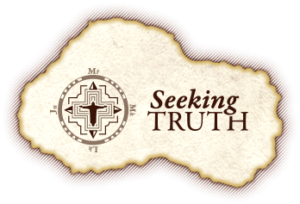Podcast: Play in new window | Download (Duration: 30:56 — 21.2MB) | Embed
Subscribe: Apple Podcasts | Spotify | Amazon Music | Android | Pandora | iHeartRadio | JioSaavn | Podchaser | Gaana | Podcast Index | Email | TuneIn | Deezer | Anghami | RSS | More
Episode 22 – John 10: The Good Shepherd part 2

In this next chapter of John’s Gospel, Jesus reveals two more “I am” statements: I am the gate, and I am the good shepherd. To help us better understand this beautiful imagery, Sharon teaches us about shepherding in Biblical times. Many of the great figures of the Bible were shepherds, including Abraham, Isaac, Jacob, Moses, and David. We recall the interesting story of Jacob who used his expertise in animal husbandry to breed a line of sheep that exists to this day.
Throughout scripture, we see a multitude of references to shepherds, and how a good shepherd protected his sheep, binding wounds, rescuing from danger, gathering together, seeking the lost. Psalm 23 is a wonderful example of imagery that describes the relationship between a shepherd and his sheep, a clear metaphor of our relationship with the Lord. The shepherd carried a rod to ward off predators or count sheep and staff to draw his sheep close. As our shepherds, the Bishops carry a crosier staff, which is a visual reminder of their duty to provide the proper teaching necessary to ward off sin. The shepherd carried a horn filled with oil to soothe wounds and ward off insidious diseases. Oil is a symbol of the Holy Spirit and at the Chrism Mass, the bishop breathes the Holy Spirit into the oil that will be used for anointing. Oil is also a reminder of the bishop’s duty to identify the prevalent sins of current times and treat these diseases quickly, preventing infection from spreading throughout his flock.
To help us understand Jesus as “the gate” Sharon teaches us more about the nature of shepherding. At night, the shepherd guided his flock into an enclosed pen and would sleep at the entrance, acting as the gate through which no predator or thief could enter. Jesus is the singular gate to the Kingdom, through which is the sure way to salvation. The shepherd would literally lay down his life to protect his flock, unlike the hireling who would abandon the sheep at the first sign of danger. The hirelings at the time of Christ were the corrupt Jewish leaders who conspired with the worldly powers to maintain their power and influence.
Sharon concludes with a history lesson that puts this in proper context. During the Greek occupation of Israel, a civil war broke out between Jews faithful to Mosaic law and the apostates who abandoned their faith to curry favor with the Greeks. Led by the Hasmonean’s, the faithful Jews were victorious over their unfaithful countrymen and also successfully drove out the Greeks. Building upon their success, the Hasmoneans forced conversion to Judaism upon the surrounding gentile nations. One of these nations was Edom, the descendants of Esau. A notable Edomite was Herod the Great, who married a Hasmonean princess, only to slaughter her remaining kinsmen, establishing a dynasty in servitude to the world power of Rome. The Sadducees, who followed only Torah and did not believe in the resurrection, came into existence during this period, and became a powerful influence at the time of Christ, only to fade into oblivion after the destruction of the Temple in 70 AD.
Sharon Doran serves as the teaching director of “Seeking Truth.” An experienced Bible Study teacher, Sharon has a passion for scripture that will motivate and challenge you to immerse yourself in God’s Word and apply His message to your everyday life.
For more in this series visit the Seeking Truth with Sharon Doran Discerning Hearts page
 “Seeking Truth” is an in-depth Catholic Bible Study, commissioned by the Archdiocese of Omaha in response to John Paul II’s call to the New Evangelization as well as Pope Benedict XVI’s exhortation for all Catholics to study scripture. To learn more go to www.seekingtruth.net
“Seeking Truth” is an in-depth Catholic Bible Study, commissioned by the Archdiocese of Omaha in response to John Paul II’s call to the New Evangelization as well as Pope Benedict XVI’s exhortation for all Catholics to study scripture. To learn more go to www.seekingtruth.net



